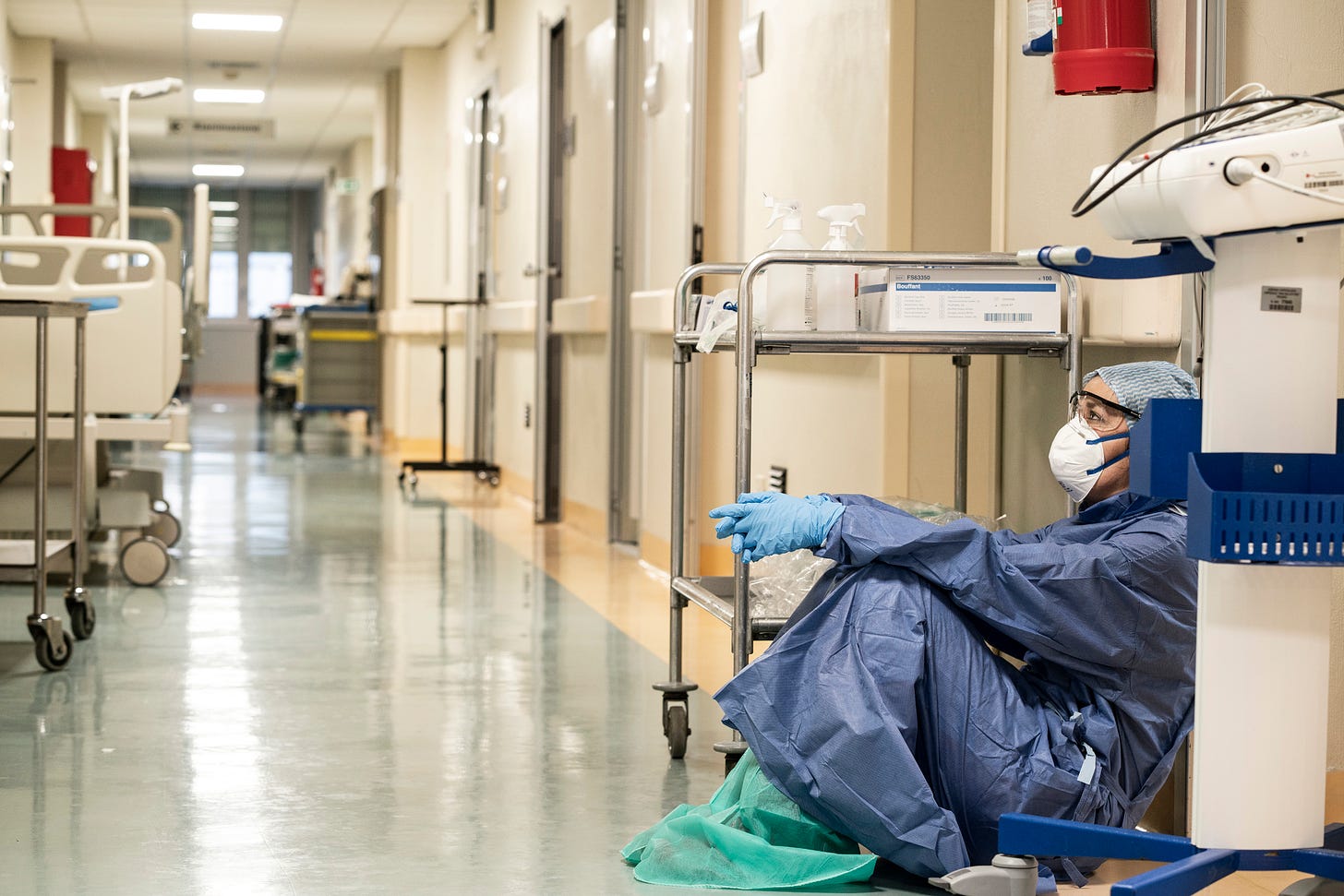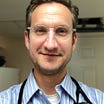
I have started to feel a new kind of tired.
I am tired in a way that happens when you have been angry for too long. When you have been sad for too long. When you have been frustrated too long.
I have been all of those things for too long. And I am far from alone.
The pandemic has taken a massive toll on almost everyone, so feeling tired is hardly unique to me. Many people have had it far worse than I have, and have suffered real losses far more grievous than anything I have endured. It is important to me that I acknowledge that.
And yet, the weariness I feel is specific to the kind of work that I do. I’m a doctor, and I am tired in a way that I know many of my colleagues in healthcare are feeling, too.
The fatigue, with its anger, sorrow, and frustration, twines around a solitary origin. Like many, I had hoped it would have waned by now, and its durability makes me more tired with every day it continues.
I steel myself a little bit every time before I walk into an exam room to do a check-up. It has become a matter of routine for me to ask my patients’ parents and, if they’re old enough, my patients themselves if they’ve gotten vaccinated against Covid. Having these conversations is the standard of care during the pandemic, as far as I am concerned.
Quite often the need for this conversation is nullified when I can see in advance the dates in our system for when the patient got the vaccine. (Our medical record system communicates with the state vaccination database.) When that happens, I have the joy of thanking the patient and their parent for doing the right thing. The replies are frequently along the lines of “of course!”
I wish “of course!” were everyone’s attitude. Tragically, it is not.
I practice in Massachusetts, one of the most vaccinated states in the nation. Even so, far too often the response is in the negative. Every time I hear “no,” I ask why.
Sometimes the conversations that follow go very well. The parent may have some genuine concern about the vaccine, often because they have heard some kind of disinformation about it or another. On many occasions, being able to offer a fact-based recommendation as their child’s doctor has been effective in getting those parents vaccinated. It is extremely gratifying when that happens.
And then there are the hard nos. They don’t trust the vaccine. They don’t think the pandemic is really that bad. Some variation on a tiresome theme.
I know a wall when I see one. I summon what cheer I can still muster and do my best to maintain the warm and friendly demeanor I strive for when I see patients, and move on. It takes effort.
By now, I have lost track of how many states have exceeded their capacity to admit people to intensive care units, where hallways and conference rooms have been converted to clinical areas as much as there is space to find. Where people wait for hours before they can even physically enter an emergency department. Where there is nowhere to transfer a patient if they need more complex care than is available at the hospital they’ve been admitted to. As of this writing, 80 percent of all ICU beds in the nation are occupied.
There is no reason this should be the situation we’re in as a nation. There is no reason that in large areas across the nation you’d damn well better drive safely and hope all of your arteries are in good shape, because vaccinated or not, there’s nowhere for you to go if you have a medical emergency. There is no reason we are mired in yet another surge of this magnitude.
For months, there have been safe, effective, accessible, free vaccines that would have kept this catastrophe at bay. Just sitting right fucking there. And 20 percent of respondents to a recent poll said that they’re still not likely to get one. While that percentage may not seem like a lot, it remains high enough for us to be experiencing this surge. It is high enough that I regularly meet people it includes.
Keep in mind, I am seeing these people while there is still time. I have these conversations during well checks or when patients are seeing me for minor ailments. I have them in the desperate hope that I can keep yet one more person out of an ED or ICU when it is still possible to prevent it.
If I feel defeated and exhausted to see people waving away the thing I know will protect them from those outcomes, I truly cannot imagine how it is for those who are caring for people when it is too late. Showing up for work in emergency medicine or critical care or at an overcrowded patient ward, to be battered daily by the fruits of ignorance, intransigence, or outright malevolence, is taking a toll on everyone doing everything they can to save these people. Their weariness must be fathomless.
As for me, I look forward to the coming months with both joy and dread. While much uncertainty remains, the most recent reports I have seen give me reason to hope that there might be vaccine approval for more of my younger patients. I am hopeful we might even be able to offer it in our own practice. I know so many of my patients’ parents are eagerly awaiting it, as I am as a parent myself.
I also know many others will decline it for their children. Many will believe a bad study about vaccine side effects on the heart, rather than my interpretation of that study, or the unsubstantiated word of a pop star, rather than mine. Many will trust me enough on all manner of other matters, but not the one that presses most upon our lives. Many will not do all they can to keep schools from being a place where the virus can be easily passed.
And I will keep asking and trying and caring as best I can, regardless of that decision, because I love my patients and I love my work and I chose this profession for a reason. But I am so very tired.





